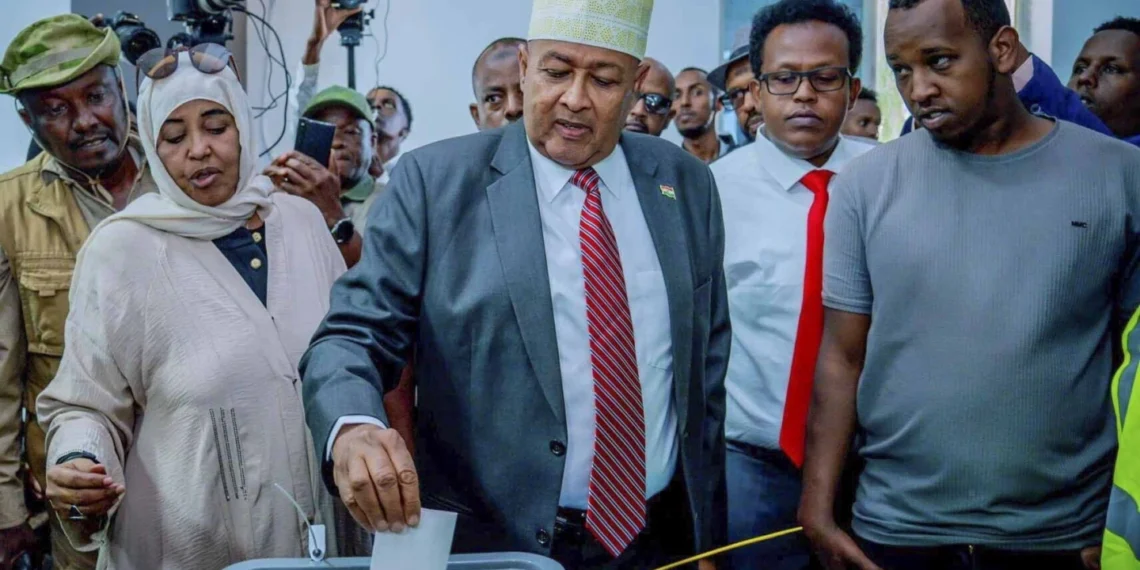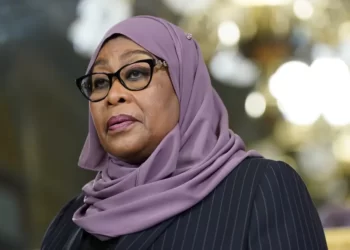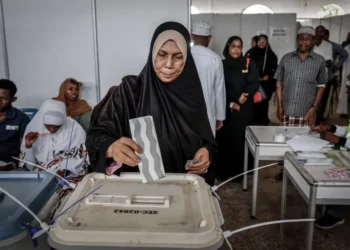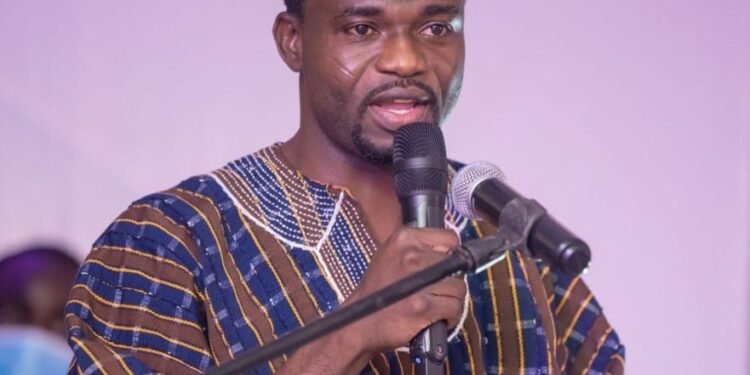Somaliland’s opposition leader, Abdirahman Mohamed Abdullahi, known as Irro, has been declared the president of the breakaway region, according to reports from the Somaliland National Electoral Commission (NEC).
Abdullahi, representing the Waddani Party, won decisively with nearly 64% of the vote, defeating the incumbent President Muse Bihi Abdi of the Kulmiye Party, who secured around 35%.
“This election is not a win or loss for the candidates. It was an election of unity and fraternity and pushing ahead the Somaliland nation,” Irro said in a televised address on Tuesday.
The presidential election, which took place last week, had been postponed for two years due to funding issues and logistical challenges. This delay had raised tensions within the region, making the outcome highly anticipated by both residents and political analysts.
During their campaigns, both Abdullahi and Bihi pledged to rejuvenate Somaliland’s economy and further the quest for international recognition. Somaliland, which declared independence in 1991 amidst Somalia’s descent into civil war, has since maintained its own government, currency, and security forces.
Despite this, its independence remains unrecognized by any nation, limiting economic opportunities and hindering the travel of its six million residents.
Controversial Deal Fuels Tensions
Adding to the complexity of Abdullahi’s victory is a contentious deal between Somaliland and Ethiopia. Signed on January 1, 2024, this agreement allows Ethiopia to lease 20 kilometers of Somaliland’s coastline, granting it strategic naval access. In exchange, Ethiopia has promised to provide an “in-depth assessment” of recognizing Somaliland’s sovereignty.
While Somaliland’s government sees this as a step towards international validation, the deal has sparked outrage in Somalia, which views the arrangement as an infringement on its sovereignty. The deal has also incited protests in Somaliland’s Awdal region, underscoring local divides over the move.
Ethiopia, already a key player in Somali security through its peacekeeping force, now finds itself at the center of a regional balancing act. The agreement has pushed Somalia to seek support from Ethiopia’s traditional adversaries, Egypt and Eritrea, raising fears of a wider geopolitical shift and potential conflict.

Internal Struggles And New Leadership
Abdullahi’s presidency comes amid heightened internal tensions in Somaliland. Clashes in Lasanod, a city in the eastern region, have pitted Somaliland forces against members of the pro-unionist Dhulbahante clan, resulting in significant casualties and displacement.
The emergence of the SSC-Khatumo administration, which opposes Somaliland’s secession, has added another layer of instability, challenging the new president’s ability to unify the region.
Despite its relative stability compared to Somalia, the internal divisions within Somaliland are profound. Abdullahi’s administration will need to address these challenges while maintaining focus on its larger goals: bolstering the economy and pushing for international legitimacy.
Hopes For International Recognition
The new leadership also comes at a time when Somaliland looks to the United States for a potential policy shift.
The region is hopeful that discussions within the U.S. Department of State, influenced by officials who supported Somaliland during Donald Trump’s first term, could lead to reconsideration of American recognition of Somaliland’s independence.
The incoming U.S. administration’s stance on this matter could significantly affect the region’s international status.
As Abdullahi steps into his role, the task before him is formidable. He must navigate the fine line between asserting Somaliland’s ambitions for global recognition and addressing domestic challenges that could destabilize the region.
The unfolding political, social, and economic implications will be closely watched, as Somaliland seeks to carve out its identity and place within the broader Horn of Africa.
READ ALSO: Professor Bokpin Criticizes NPP’s Economic Management























